



Amanda McRaven is a director, educator, writer, and deviser, in love with performance from right now about right now, no matter how old the story may be. She is a Fulbright recipient to New Zealand, where she worked in community-based, multicultural, ensemble theater. There she also taught at Massey University and directed for Shakespeare Globe Centre New Zealand. She is the former Director of Education for the American Shakespeare Center, where she spent three years developing the company’s youth programs. Her productions have received critical acclaim for energetic, passionate performances in Los Angeles, San Francisco, New York, Virginia, and New Zealand. Directing credits include Macbeth, Orpheus Descending, As You Like It, Henry V, Antony and Cleopatra, Romeo and Juliet, Waiting For Godot, The Seagull, and Rosencrantz and Guildenstern Are Dead. Amanda works on performance that is physical, that re-ignites live audiences, and that engages non-theater communities. In addition to directing, Amanda’s interest in social arts programs led her to head The Voice Project, a writing and performance ensemble for female inmates. She is most interested in creating collaborative, vigorous, audience-centered performance.

Kelly’s biography is on the cast page for Leonato’s household.

Joy is primarily a writer and teacher of writing at Massey University, but also has extensive experience in theatre, working as a director, producer and costume designer. Locally, she has been directing theatre pieces and performance poetry presentations since 2006 for projects such as FONA and the Manawatu Dreaming Street Theatre Company as well as directing plays such as Mort and Cabaret. She has been involved with Manawatu Summer Shakespeare since 2009, when she did the publicity for Peter Hambleton’s All’s Well That Ends Well, and has acted as Producer for the last three productions. Her enthusiasm for Shakespeare also led her to co-write with Adam Dodd (and even perform in, a very rare thing), a play based around Shakespearean character archetypes and plot devices. This piece, Worse Things Happen At Sea, received Globe Awards for several of its actors and for the writing, and is currently under production at Dunedin’s own Globe theatre. As well as work and Summer Shakespeare, Joy is currently finalising a poetry installation to be presented in FX2 at Square Edge in April.
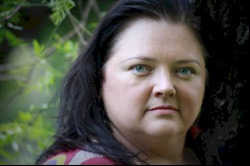
As a student at Massey, Thérèse studied performing arts and acted/produced/directed numerous shows for Massey University Drama Society (MUDS). She also acted in some of Angie Farrow’s plays, such as The Bowler Hat. She continued studying overseas with drama, movement and voice courses at The London School of Speech and Drama. She has been absent from the stage for sometime so this Summer Shakespeare marks her return to things theatrical. This play, containing some of Shakespeare’s best female roles, is one of her favourites.
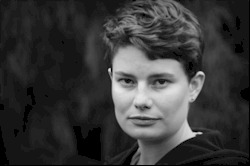
Sasha has been involved with numerous productions in technical roles around the city including musicals such as A Slice of Saturday Night as well as a number of Summer Shakespeares. She also performed last year in A Midsummer Night’s Dream having first ventured on stage as a dancer in Cabaret in 2009. In 2010 she took the role of Margaret in Worse Things Happen at Sea and delivered performance poetry at FONA. In 2011 she acted as Stage Manager for MUDS production of Invaders From Mars.
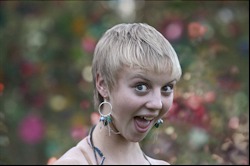
Hannah’s biography is on the cast page for the Arragon contingent.

Liz is an actor, dancer, choreographer and educator. She has been Artist in School at Tikipunga High School Whangarei, creating a community theatre piece with students. She has also worked with Kapital Kids, Capital E, Perform Educational Musicals! and Kore Theatre touring Shakespeare through secondary schools for several years, as well as teaching dance on Massey’s Creative Processes paper. She also wrote, directed and performed in Junk, the story of her aunt who was the first female police officer in New Zealand. This is Liz’s first Summer Shakespeare.
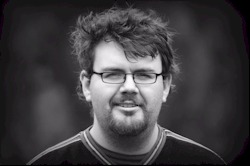
Much Ado About Nothing marks Nick’s fifth consecutive Summer Shakespeare, and he has worked in technical roles with many other projects, including, but not limited to, three FONAs, The One After the Last Goon Show, A Slice of Saturday Night, Worse Things Happen at Sea, Before the Birds, The Bowler Hat and numerous others. He has been taking a sabbatical for most of 2011, but is always happy to do something Bard-y.
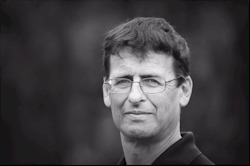
This is Nic’s fourth Summer Shakespeare, and may be his most ambitious yet, although there are no rolling double beds in this year’s production. In addition to Summer Shakespeare he has also designed and constructed props, staging and sets for several Festivals of New Arts and MUDS productions such as Mort, Cabaret, Worse Things Happen at Sea and Invaders From Mars. He is a god with power tools and his ability to build almost anything out of almost anything leaves the non-practical amongst us awestruck.

Sarah assisted Claire New on costuming the last two Summer Shakespeare productions, Macbeth and A Midsummer Night’s Dream as well as working with her on the very demanding costumes for The White Coat Ensemble’s Madame de Sade in 2010 ‒ costumes for this last production were exhibited at Square Edge. Sarah is hoping to study costume design at Toi Whakaari when she finishes school.

Megan has organised front of house and hospitality for a number of MUDS shows, including the supper service that went with the production of Cabaret. This is her third year on Front of House for Summer Shakespeare and she has also filled a number of back-stage roles including Assistant Stage Managers for the Festival of New Arts, and for Creative Processes Summer School, charge of coordinating performers and stage set up for these complex, multi-disciplinary productions. This year she also took on more responsibility for administration, becoming vice-president of MUDS, and producing their 2011 play Invaders From Mars.
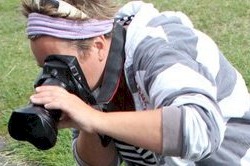
Last year, Anu was involved in a number of productions as a performer, including FONA, playing Philostrate in A Midsummer Night’s Dream and performing both poetry and mime in the Manawatu Dreaming Street Theatre company. However, she also took a number of photographs for last year’s Summer Shakespeare, and with her transfer from Massey to UCOL’s BAVI course, she has concentrated her efforts on visual rather than theatrical art in the latter part of 2011. Anu designed the poster for Angie Farrow’s play, The River and is providing still and video photography for Much Ado About Nothing.

Tom hosts and manages the websites for Summer Shakespeare performances, and has even acted in a couple of them ‒ 2010’s Macbeth, and 2011’s A Midsummer Night’s Dream. Photo by Hayley Rhiannon.
This is Jesse’s third year as lighting operator for Summer Shakespeare. As well as working on the technically demanding productions outdoor productions of Macbeth in 2010 and A Midsummer Night’s Dream in 2011, Jamie has also been involved in tech for a number productions at the Globe, such as A Slice of Saturday Night, Wit, Equus and The Little Dog Laughed, MUDS productions such as Worse Things Happen at Sea and Invaders From Mars. He was also part of the technical team which made The Abbey’s ambitious production of Jesus Christ Superstar at the Regent possible.
Laurie is a hugely experienced techie – he has worked extensively in theatres in the lower North Island managing lighting at Centrepoint Theatre before moving to Wellington where he is running lighting for the current production at Circa Theatre. We still manage to lure him back to the Manawatu from time to time however, and he ran the technical elements of Jaime Dörner’s recent production of The River by Angie Farrow, for which he has been nominated for a Globe Award.
Kereama designed the original Manawatu Summer Shakespeare logo and was responsible for several early posters. He’s back in 2011 with a groovy update of the logo, and new publicity material ‒ and it looks great!
An award-winning playwright and teacher, Angie Farrow is the driving force behind the genesis and continued existence of Summer Shakespeare, as well as many other arts initiatives in Palmerston North. She has devised and constantly championed both the organisation and the Visiting Artist Scheme from which its directors are drawn. Without her and the invaluable support of the administrative team at Massey’s School of English and Media Studies, these productions would simply not be possible.
